Savvy hunters always show up prepared, and they take every fair advantage possible to have a successful hunt. We’ve broken down the essential deer hunting equipment that expert hunters use to increase their proficiency, from the hunt’s planning stages through the time you confirm your kill. Adding these tools to your arsenal could increase your sighting rate, kill rate, comfort and safety.
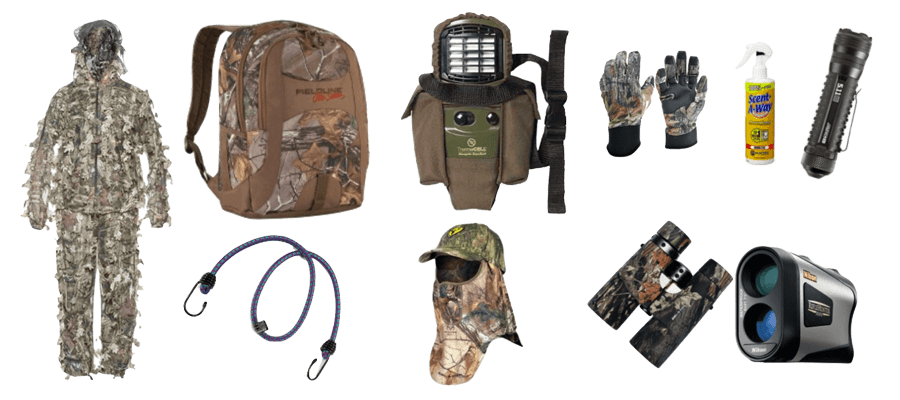
Pre-Hunt Preparation
- Keep your gun clean and well-maintained, and stay in practice. Prepare extra ammunition, scopes, shooting sticks, gun rests and any other gun accessories that you’ll need. Sharpen your knives and/or arrows and don’t go hunting until you’re sure that everything is functioning and safe to use.
- Hunting is about being responsible, and failure to carry a small first-aid kit with you is an easily-avoided mistake. These kits don’t take up much space and they could literally be life-savers. A respectable first-aid kit includes absorbent bandages, dressings and tape, antibiotic ointment, antiseptic wipes, aspirin, ibuprofen, gloves, hand sanitizer, scissors, gauze, a thermometer, tweezers, ammonia inhalants, a breathing barrier…and perhaps most importantly, an emergency cell or satellite phone. Also make sure you have plenty of toilet paper and wet wipes.
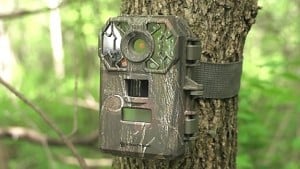 Buy fresh batteries for trail cameras, flashlights, etc.
Buy fresh batteries for trail cameras, flashlights, etc.- Make sure your deer hunting license and gun registrations are up to date. You’ll also want to confirm your number of tags.
- Use electronic charts, maps and locaters that have been updated recently.
- Prepare food plots and make sure your blinds, stands and trail cameras are set up properly.
Clothing for Hunting Deer
- Start off with head-to-toe camo (including belts, socks, overalls, etc.). The clothes should be washed with an unscented detergent and sealed in a container prior to the hunt.
- Many sites require you to wear a certain amount of “hunter orange” but even if there are no such laws in your area it’s always a good idea to keep something eye-catching on hand. At the minimum pack an orange hat and vest.
- Don’t buy just any boots. Leather and other materials can retain scents that will make the deer wary. Use rubber boots, and if you’ll be going on long trips or hunting in cooler areas then make sure the boots are properly insulated.
- Your gloves, jacket, long underwear and socks should all be as insulated and water-resistant as possible.
- Keep a camouflage rain suit nearby at all times.
Deer Hunting Equipment & Accessories
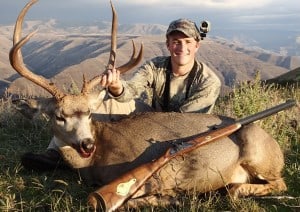 There are a variety of deer calls. Each one serves a different purpose, so study up on which calls are best for your area and game and give them a try.
There are a variety of deer calls. Each one serves a different purpose, so study up on which calls are best for your area and game and give them a try.- Tree stands give you a better view of the area and make it harder for deer to determine where you are. You can buy a stand or make your own.
- Blinds are used to conceal hunters. They are usually placed on the ground and resemble boulders or bushes, and they have an opening for the hunter to observe and aim.
- Trail cameras allow you to scout an area for months at a time. They make it easier for you to find the deer and track their habits. Game cameras are surprisingly affordable right now, and many have built-in viewers so you can instantly see photos and videos of deer in the area. If you have game cameras, be sure to format the SD card and use fully-charged batteries.
Post-Shot Equipment
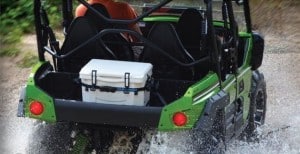 Have your hunting license, gun registration and game tags handy.
Have your hunting license, gun registration and game tags handy.- You’ll need an ATV or truck to transport your kill.
- Individuals who plan to clean and process the venison themselves will need long (elbow or shoulder length) gutting gloves, a pelvic saw, a folding saw, a grinder and processing knives.
- When the meat is ready to be packaged and frozen or sold, make sure you have plastic bags, a marker, a reliable scale and plenty of freezer paper/tape.
Conclusion
Many of the aforementioned pieces of deer hunting equipment might seem familiar and common-sense to you, but how many of the above items are new to you? You shouldn’t ever feel pressured to use specific equipment just because your buddy has it or it’s supposedly popular, because each hunter has a system that works for them.
If you do want to increase your success rate, however, it might be worthwhile to give some of this gear a chance considering many expert deer hunters use most or all of these items. By the way, if you think we left out any crucial deer hunting equipment tips we’d love to hear from you so we can keep this list current and comprehensive. Happy hunting!
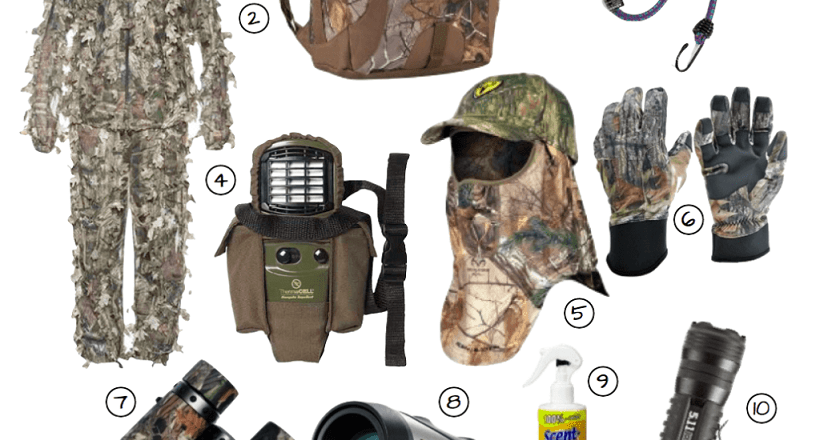
Leave a Reply